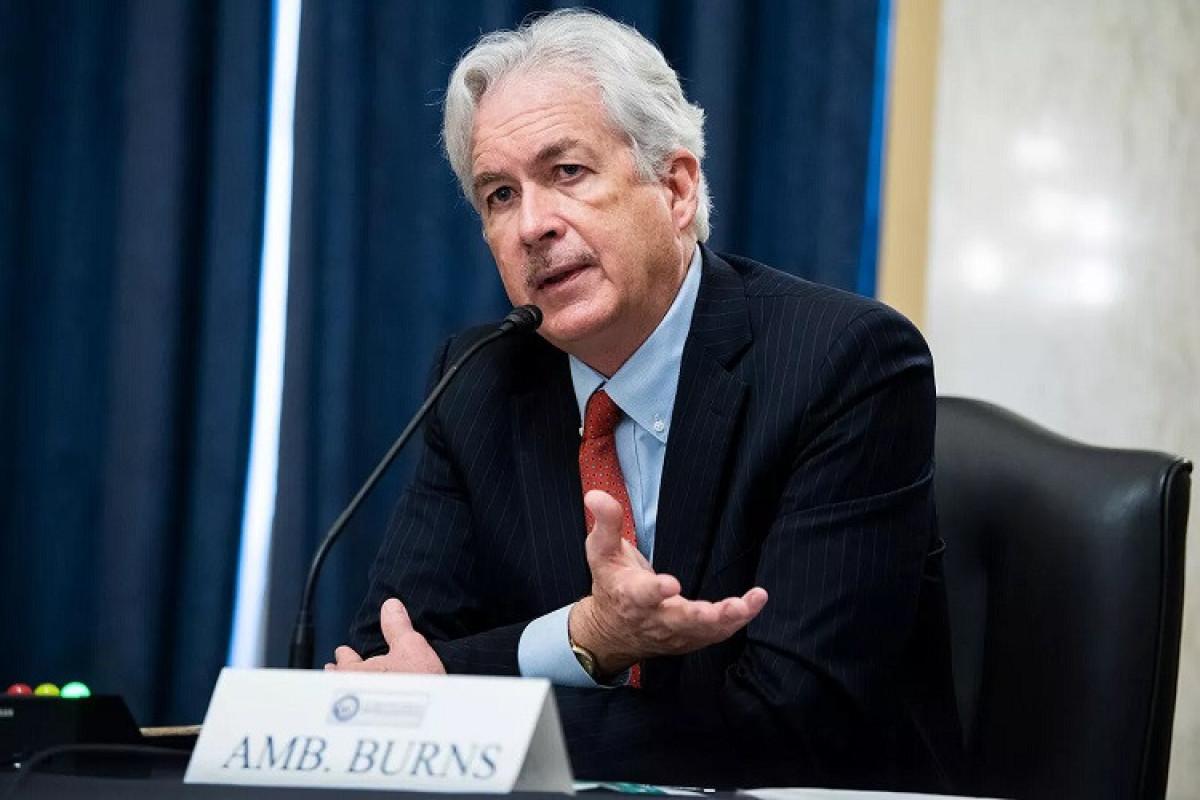Signs of Mistruth: Yerevan under the crosshairs of US and Russian intelligence No good news for Armenia
The visit of CIA head William Burns to Yerevan is perhaps the most controversial event of the past weeks. Even against the background of the summit of the leaders of Türkiye, Russia, and Iran, it does not pale into insignificance, but rather stirs up a lot of questions. And in addition to the classic "what would it mean", another question is inevitable: will it have a positive/negative impact on the geopolitics of Baku, or we in this situation, as they say, "do not care a dime".
Interestingly, the Armenian media themselves are quite puzzled by the visit, building various conspiracy theories on the subject, but are clearly unable to answer the main question - what would it mean? Russian analysts, on the other hand, are more resolute and assess the visit as extremely negative for Yerevan, a clear sign of trouble. Russian military observer Pavel Felgenhauer warns Armenians "not to rejoice" over the visit of the CIA director.
"His arrival is a bad sign. It means that the situation, in general, is on the verge of a very serious crisis. It is an unfriendly visit. It may be the last warning to Armenia," Felgenhauer believes.

He recalls that Burns came to Russia shortly before the war with Ukraine, and, in his opinion, these events are definitely somehow connected. So it is quite possible that his Yerevan trip is Armenia's last warning that if it continues to maintain what Washington sees as close ties with Russia and Iran, a very serious cooling in relations with the United States could ensue.
Burns, according to the Russian expert, arrives when normal diplomatic channels are no longer working. And conducts a "terrain analysis."
"He came to Moscow and apparently assessed that war was inevitable. Accordingly, relations began to deteriorate sharply," the Russian military observer suggests, warning that Washington may well enlist Yerevan in the same camp as Iran, Russia, and Belarus.
It is an interesting point of view, taking into account that Pavel Felgenhauer does not base his forecasts on assumptions; as a rule, they are based on serious analysis.
The expert foresees that in the future the US will begin to strengthen its relations with Azerbaijan and, apparently, with Türkiye, "because Türkiye is certainly more important than any Armenia in the regional situation."
The Armenian media noted many strange things not only in the fact of the visit of the CIA head but also in the schedule of his meetings. They are surprised, for instance, that Burns did not meet with the head of National Security Service Armen Abazyan, but met with Prime Minister Nikol Pashinyan and the secretary of National Security Council Armen Grigoryan.
"It must be understood that he does not trust: not a friend - rather a foe," Armenian journalists write, meaning that Armen Abazyan was ignored.

But this is not the end of these geopolitical twists, because only a few days apart, a representative of an entirely different power pole, Sergey Naryshkin, head of the Russian Foreign Intelligence Service (FIS), visited Armenia. It is impossible to avoid this fact.
At the same time, Naryshkin's statement about his visit to Yerevan having nothing to do with the recent visit of US CIA director William Burns to the Armenian capital is somewhat grotesque. Well, apparently, we have to take his word for it, since he is trying to assure everyone of that.
However, the configuration of the meetings is strange this time too, and the puzzles coincide quite unexpectedly. Thus, Naryshkin, having been in Yerevan and met with Pashinyan, then had a conversation with the very person whom Burns had bypassed - his colleague, the very head of the National Security Service Armen Abazyan. Thus, we can conclude that in little Armenia, in the system of its government, there are those who supervise "special relations" with Moscow as well as with its bitter enemy Washington. And all of them somehow compactly coexist with each other.
Meanwhile, some experts agree that one of the main reasons for the visits of the heads of the US and Russian special services to Armenia may be the summit of the three leaders in Tehran. Washington and Moscow must be convinced of Armenia's intention to play a different game in case, for example, Türkiye starts its own game. And Yerevan, which gets along peacefully in cooperation with the special services of different centers of power, must decide whom to follow and who is stronger here.
Well, let it get along with it, as long as it does not work destructively against the peace agenda of the region, against Azerbaijan. There are serious doubts about this, considering the latest maneuvers of Yerevan with the "withdrawal" of Armenian troops from Karabakh. Yerevan obviously doesn't want to fulfill its commitments, according to the well-known Armenian tradition, and intends to continue to play this game on two or three fronts simultaneously. However, history shows that such games often have a sad end.
Pavel Felgenhauer's rather gloomy assessment of the meeting between the Armenian and Azerbaijani foreign ministers confirms this statement.
"The situation in Armenia is very difficult. There are no military capabilities, diplomatic capabilities are extremely limited," he said.
In his opinion, Russia is not really in the South Caucasus now, and its influence is weakening because all its forces are concentrated elsewhere, and Armenia itself "will find it difficult to exist there and to hold on somehow." And to resist Baku's diplomatic influence, respectively.








